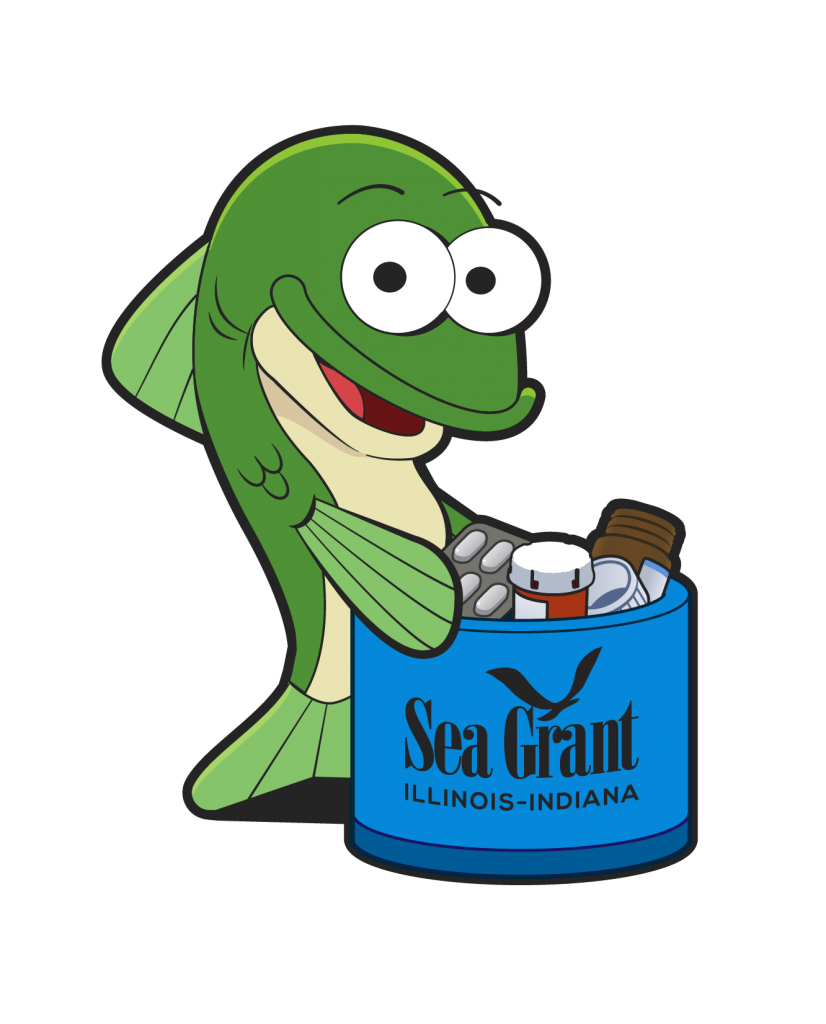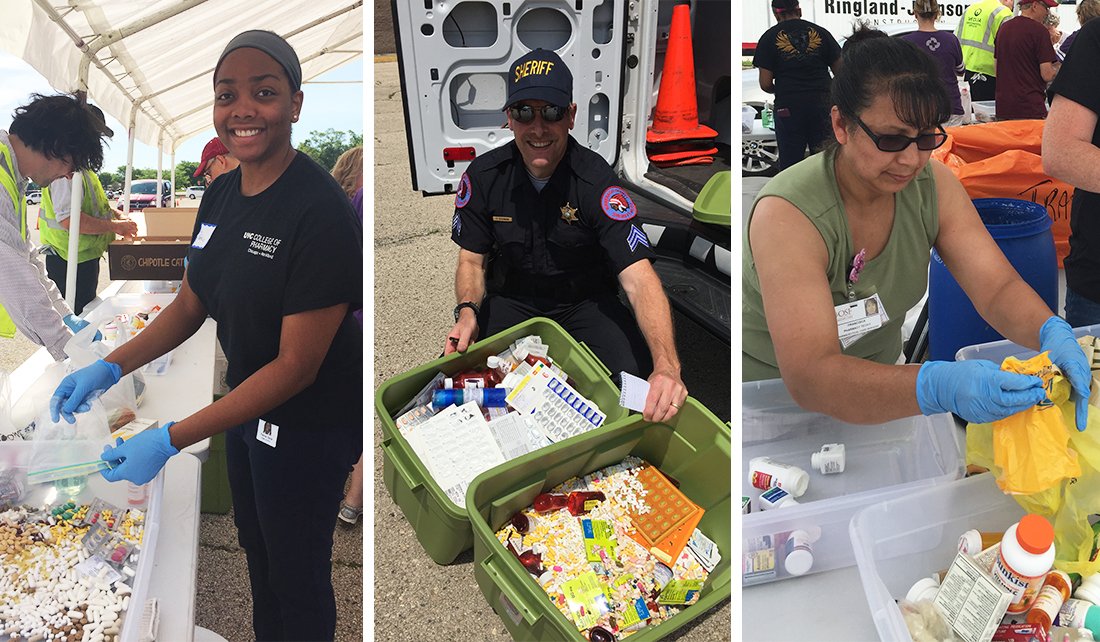Our Work Healthy Waters Programs & Initiatives Unwanted Medicines
Unwanted Medicines
 Unwanted medicine and personal care products can impact water quality—the water that we drink, bathe in, and use for recreation. Most of us do not use all of the medication and personal care products that we buy, and many of these chemicals are not regulated for safety, long-term health impacts, or environmental damage. Using the sink, toilet, or trash for disposal can put people, animals, and the environment at risk. So that raises the question—how do we safely use and dispose of these products?
Unwanted medicine and personal care products can impact water quality—the water that we drink, bathe in, and use for recreation. Most of us do not use all of the medication and personal care products that we buy, and many of these chemicals are not regulated for safety, long-term health impacts, or environmental damage. Using the sink, toilet, or trash for disposal can put people, animals, and the environment at risk. So that raises the question—how do we safely use and dispose of these products?
The daily decisions we make about using and disposing of our pharmaceuticals and personal care products impacts what chemicals end up in our rivers, lakes, and even our drinking water. A growing body of research indicates that we need to find better ways to dispose of and use them.
Pharmaceuticals
The old advice was to flush unneeded medicines down the toilet or throw them in the trash—to get them out of the house and out of the reach of children and pets. But these “easy” methods of disposal have unintended, negative consequences for public health and safety and for the environment.

When flushed or thrown in the trash, most chemicals from medications pass through treatment plants or septic systems, end up in nearby rivers or lakes, or leach into the soil. Even people who know not to flush meds may not know that unused medicines should always be taken to a nearby medicine collection program if there is one available.
IISG supports local medicine collection programs in several Great Lakes states. In fact, we have collected and properly disposed of over 100 tons of medicine.
Personal Care Products
Most personal care products enter wastewater when you bathe or wash your hands. It may seem like a small amount, until you consider the billions of other people who also use these products daily. Since septic systems and municipal wastewater treatment plants were not designed to remove these chemicals, they are continually discharged into the environment. It is not yet clear what the long-term impacts of exposure might be, but it may be sensible to avoid some ingredients.
For more information, and to find an unwanted medicine collection program near you, visit unwantedmeds.org.
Contact Info
Topic Specialist
Research Projects
Publications
Education & Training
Related News
- In 2026, IISG intends to fund 10 research projects focused on coastal concerns
- New step-by-step guide and veterinary brochures expand UnwantedMeds.org resources
- Join IISG as a new pollution prevention outreach assistant
- Relaunched website provides resources for proper medicine disposal
- Meet our Grad Student Scholars: Haribansha Timalsina
